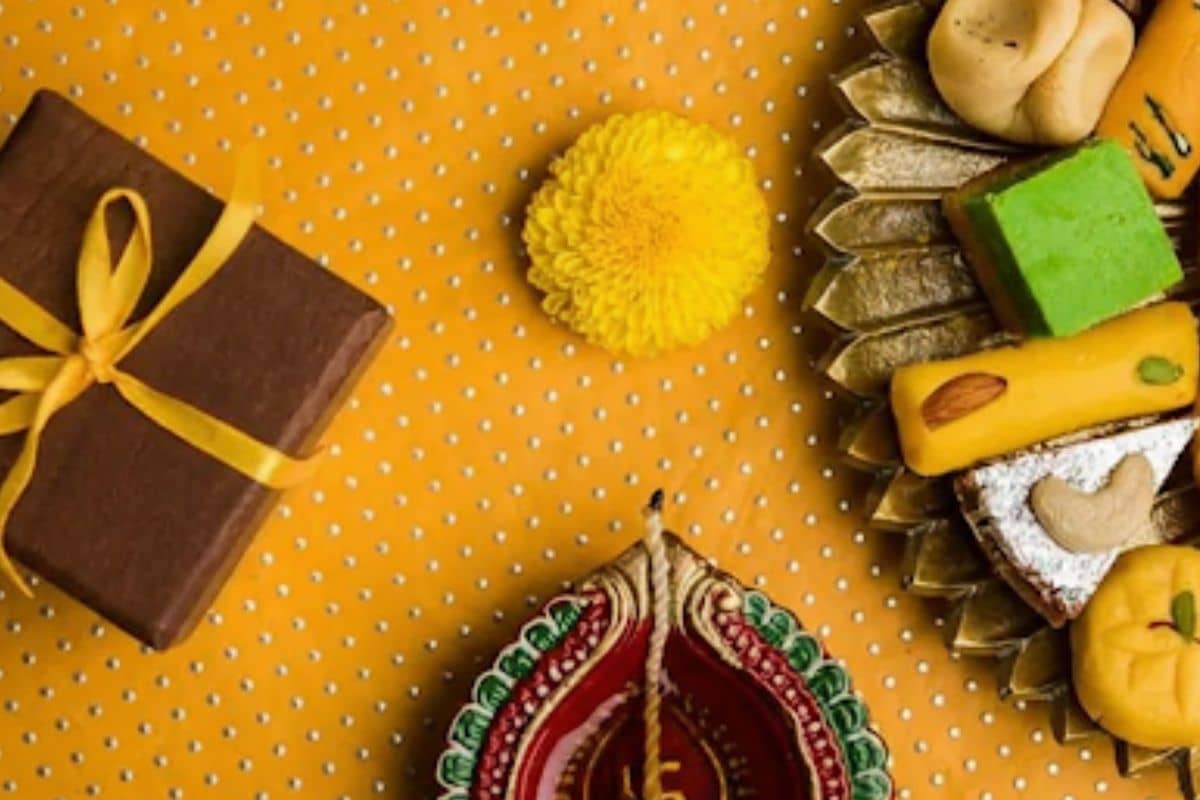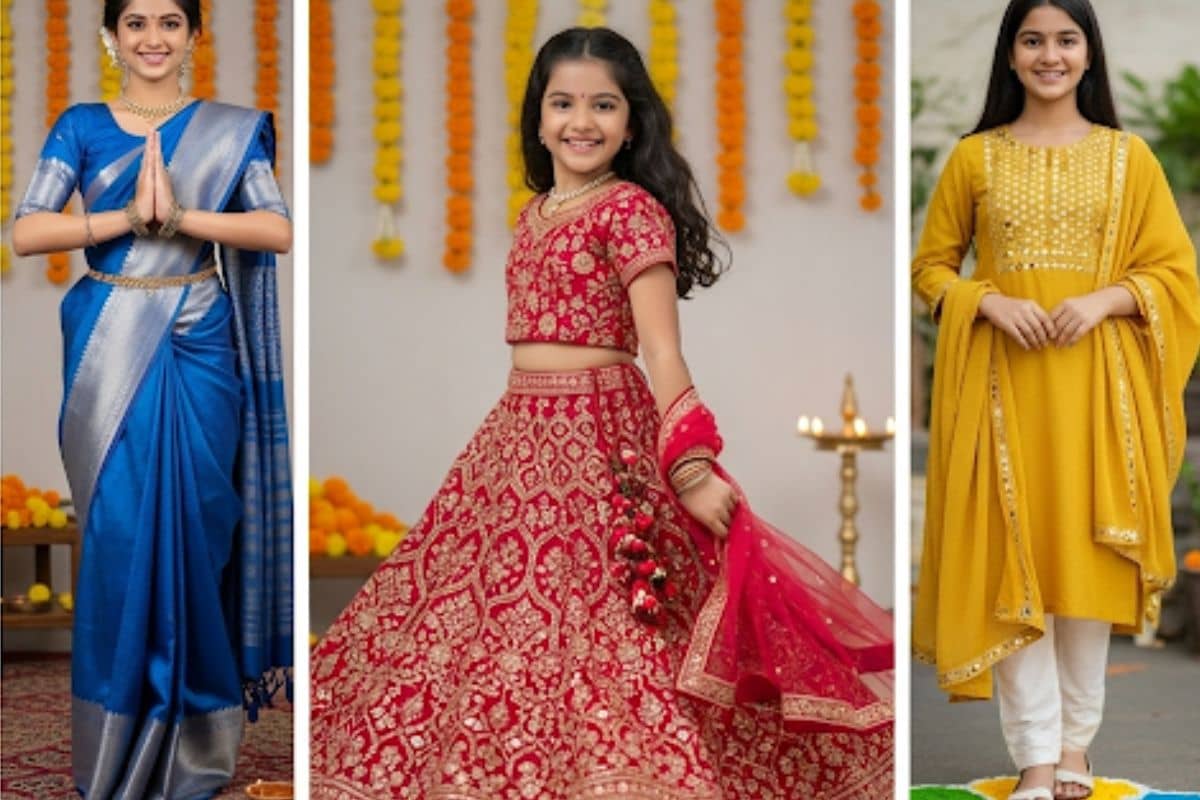The Significance of Diwali and Sweets
Diwali, the festival of lights, is not just about illuminating homes with diyas and decorating with rangoli. It is about celebrating joy, togetherness, and the sweetness of relationships. And nothing represents this sweetness better than festive sweets. Every corner of the house feels alive with the aroma of homemade delicacies, reminding us that sweets are at the very heart of Diwali celebrations.
A Short Introduction to Diwali
Diwali is celebrated across India with immense enthusiasm and devotion. Symbolizing the victory of light over darkness and good over evil, it is one of the most cherished festivals of the year. From decorating homes with lamps to wearing new clothes and gathering with family, every ritual makes the festival special. Yet, the true excitement begins when the kitchen fills with the fragrance of Besan Ladoo, Gulab Jamun, or Kaju Katli, spreading festive cheer everywhere.
Homemade Sweets vs Store-Bought Sweets
In today’s fast-paced life, store-bought sweets are easily available and save time. But the joy of preparing sweets at home is incomparable. Homemade sweets carry the love of mothers, the traditional touch of grandmothers, and the bond of family coming together. While store-bought sweets bring convenience, they often lack the freshness and emotional connection that homemade delicacies offer. That is why many families still prefer to make at least one or two varieties of sweets at home during Diwali.
The Cultural Importance of Sweets
In Indian culture, sweets have always been a symbol of auspiciousness. No celebration or ritual feels complete without them. Sharing sweets during Diwali is more than just enjoying flavors—it is about spreading happiness and strengthening relationships. Gifting a box of sweets or serving freshly made laddoos to guests is a way of adding sweetness not just to the mouth, but also to the heart.
The Importance of Diwali and Sweets
Diwali is not just a festival of lights and colors; it is also a celebration of happiness, sweetness, and love. Every home is filled with the aroma of sweets, and family members gather to enjoy them together. Making and sharing sweets is one of the most cherished traditions of this festival, symbolizing both flavor and family bonding.
A Brief Introduction to Diwali
Diwali symbolizes the victory of light over darkness. It is a time to celebrate with family and friends, decorate homes, and prepare delicious dishes. Lighting lamps, creating rangoli, and preparing sweets are all part of the festive spirit. The aroma of freshly made sweets becomes an essential part of the celebration.
Homemade Sweets vs. Store-Bought Sweets
Homemade sweets carry the love, effort, and personal touch of the family. Each step adds flavor and freshness that store-bought sweets cannot replicate. While store-bought sweets are convenient, they lack the warmth and personal touch that homemade treats bring.
The Significance of Sweets During the Festival
Sharing sweets during Diwali is more than just about taste; it symbolizes spreading love and joy. Homemade sweets enhance relationships, strengthen bonds, and add an extra layer of happiness to the festival.
Easy and Popular Diwali Sweets Recipes
Making sweets at home is a cherished tradition in every household during Diwali. Homemade sweets are not only delicious but also amplify the joy of the festival. Here are some easy and popular sweet recipes you can try at home.
Classic Sweets
Besan Ladoo, Coconut Ladoo, and Kaju Katli are favorites for all ages. Besan Ladoo is made by roasting gram flour in ghee until golden and mixing it with sugar to form round balls. Coconut Ladoo is light and quick to prepare. Kaju Katli is a royal sweet, visually appealing and rich in taste, perfect for festive occasions.
Juicy and Warm Sweets
Gulab Jamun, Rasgulla, and Sooji Halwa are especially popular during Diwali. Gulab Jamun and Rasgulla are soaked in sugar syrup, making them irresistibly soft and flavorful. Sooji Halwa is quick to prepare and can be enriched with dry fruits for extra taste. These sweets are best served warm.
Modern and Festive Twist Sweets
Chocolate Barfi, Dry Fruits Barfi, and Milk Cake are popular with kids and young adults. These sweets have a modern twist and can also be given as gifts. Dry Fruits Barfi is rich and indulgent, while Chocolate Barfi can be decorated for children. Milk Cake’s creamy texture makes it a luxurious addition to the festive table.
Tips for Making Sweets at Home
Following a few simple tips can make your sweets tastier, fresher, and visually appealing.
Freshness and Storage
Always store sweets in airtight containers and keep them in a cool place. This ensures they remain fresh for longer and retain their flavor. Ladoos and Barfis, in particular, can stay perfect for several days.
Healthy Alternatives
For healthier options, replace sugar with jaggery or dates. Some lighter sweets like Sooji Halwa or Dry Fruits Barfi are both delicious and nutritious.
Time-Saving Tips
Some sweets, like Besan Ladoo or Dry Fruits Barfi, can be made in advance. Choosing quick-to-make recipes helps save time, allowing you to enjoy other festival preparations.
Adding a Festive Touch
Once your sweets are ready, decorating and gifting them can enhance the Diwali celebration.
Decoration and Presentation
Arranging sweets beautifully in plates or bowls makes them visually appealing. You can add dry fruits or chocolate for extra decoration. Placing colorful sweets together makes the festive table look more vibrant.
Gift Ideas
Pack sweets in small boxes or tins for gifting. Small pieces and colorful sweets make the gift more special. Giving homemade sweets to friends and family adds warmth and love to the festival.
Enhancing the Joy of the Festival
The real joy of sweets comes from sharing them with family and friends. They symbolize not just taste but love and happiness. Sharing sweets spreads the festive spirit and brings everyone closer together.










